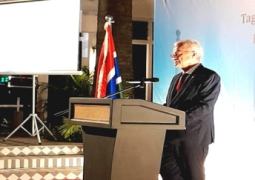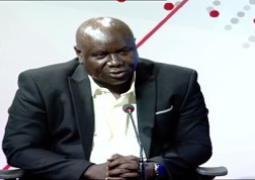
Minister Joof explained that the excise tax is levied on imported bagged cement regardless of its source, justifying that the measure doesn't target any specific country as that would constitute discrimination.
“Past studies of the manufacturing sector in the country found that more than 80% of the manufacturing units were operating less than 50% of their installed capacity due to high cost of energy, taxation and limited market space. To spur growth in the industry, the government has decided to support the industry by imposing an excise tax on the importation of bagged cement,” he said.
“As The Gambia's economy is highly an open trade; both merchandise and services trade has become an important contributor to economic growth.”
“While imports and exports both continue to increase, trade balance has traditionally been a deficit due to the meager level of production taking place,” he said.
He added that to further promote Gambia-ECOWAS trade; the country started implementing the ECOWAS trade liberalization scheme (ETLS) in 2006 and has so far registered over 30 manufacturing enterprises in the Scheme. “As part of this scheme, Gambian producers can freely (without duties) sell to other ECOWAS countries just as they are freely able to sell in The Gambia.”
“The ETLS, therefore, enables Gambian producers to access the sub-regional markets without worrying about tariffs, which is a major barrier for international trade.”
“As a result of the ETLS, Senegalese enterprises have penetrated the Gambian market, and imports from Senegal continue to rise every year growing from around D774 million in 2018 to over D3 billion in 2022.”
“This is, however, not surprising given The Gambia's proximity to Senegal, and the fact that the two countries share many things in common; particularly, cultural and religious values. On the contrary, since the closure of Banjul Breweries, ETLS exports from The Gambia to Senegal has ceased as access to market continues to be a challenge, for any products from The Gambia whether domestically produced or even through transit to third countries.”
“All companies find it very difficult to access the Senegalese market, due to protectionist policies by their government, with strict enforcement by Customs.”
The minister said the development of the economy is through the creation of employment and large tax contributions.
“The combined employment level is good and will increase with additional government support. However, the sustainability of the industry without significant government support may be difficult due to smuggling, under declaration, high cost of production, and duty-free access to the Gambian market through ETLS.”



